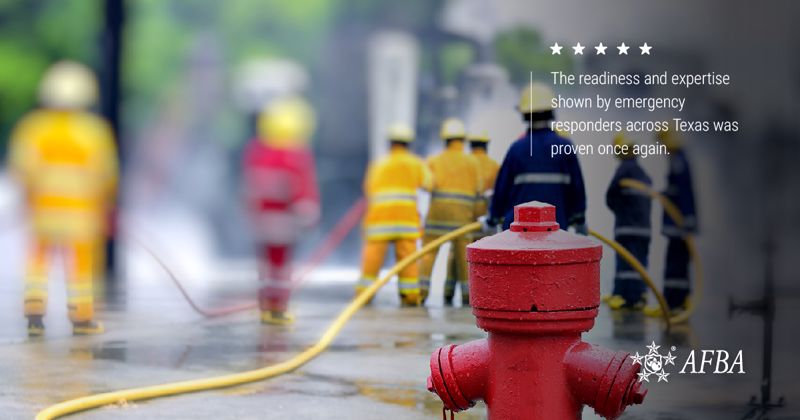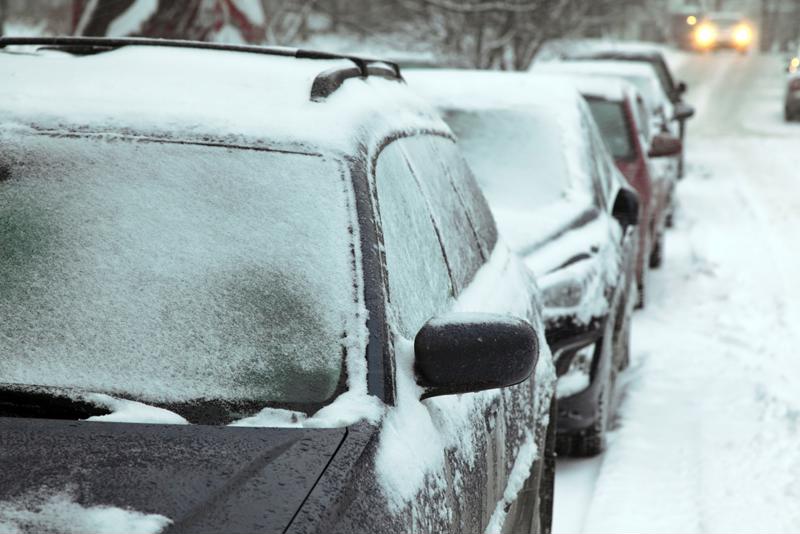Two especially large and powerful winter storms swept across large parts of the U.S. in February 2021. The storms' widespread effects had an especially harsh impact in Texas, a state unaccustomed to severe cold, ice and snow. As is so often the case in adverse events, first responders across Texas played a critical role in providing emergency services.
Power outages across the state and broader region affected millions of Texans. By February 12, before the second storm hit, Texas had already suffered more than 1,000 car crashes due to slippery, hazardous roads, according to Dallas-Fort Worth NBC affiliate KXAS.
Time magazine reported that many factors related to the storms, such as rolling blackouts and differences in figures reported by various sources, made it hard to land on the exact number of impacted residents. However, Time offered an educated guess that about 15 million people were without power at various points during and after the storm. The federal government quickly made a Federal Emergency Declaration to facilitate the provision of safe places to shelter and access to basic resources.
With so many dangerous elements in play — cold temperatures, snow and ice on roads and many people without power, heat or access to potable water — emergency responders fielded an incredibly large number of calls for help.
First responders rise to the call of a state in crisis
Dallas-based ABC affiliate WFAA reported that, in the North Texas region, first responders and dispatchers received far more requests for assistance than they had during any other emergency in the previous 10 years. In the city of Wylie, the population of just under 50,000 residents made about 200 calls to first responders on an average day. During the week when the second major winter storm swept across the Lone Star State, that number rose to about 1,200 calls — a staggering 500% increase.
This drastic jump in the need for emergency services is reflected in the selfless actions taken by so many first responders in Texas. In Wylie, Julia Maschmann, an experienced dispatcher, slept in the office, ate in the shared kitchen of the city's Public Safety Building and did her laundry at machines inside the city jail — all so she could stay on the job.
"You don't leave your people, you help your people," Maschmann told WFAA.
KXAN, a Fox affiliate located in Austin, reported that Kevin Horton, a fire specialist with the city's fire department, worked 120 hours in a row during the extended emergency. Overall, Austin's fire department fielded more than 5,500 requests for assistance as the storm hit the area and in its aftermath. That included playing a key role in rescuing thousands of doses of COVID-19 vaccine that could have otherwise spoiled or gone to waste, due to the severe disruption caused by the hazardous conditions.
First responders across the state drew on their knowledge, skills and past experience to respond to calls in uniquely treacherous conditions and organize their available resources in the most efficient manner possible, to provide as much assistance as they could. In terms of experience, past work in colder climates paid off for one fire department. The city of Killeen, in central Texas, had recently hired James C. Kubinski, a veteran Chicago firefighter, as its department chief, according to the Killeen Daily Herald.
"I had experienced the increased call volume and broken water pipes associated with a deep freeze and thaw more than once, so I knew what was going to be coming," Kubinski told the Herald. "There was no hesitation when the captains and battalion chiefs asked for approval to implement a plan they developed that included increased staffing and adding booster trucks as quick response vehicles. Larger fire apparatus were only put on the street for more major incidents."

The readiness and expertise shown by emergency responders across Texas was proven once again. These professionals are community heroes and they play absolutely crucial roles in trying times.


